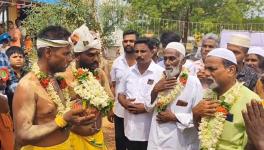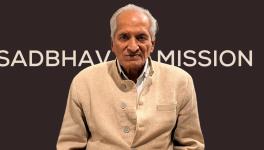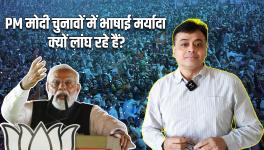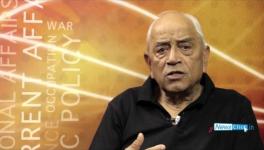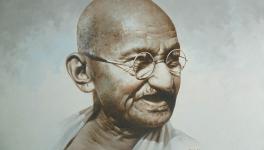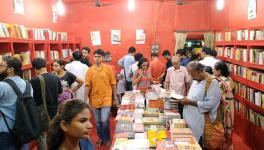Maulana Azad: A Progressive Educationist Who Fought for a Composite India
Image Courtesy: Wikimedia Commons
Independent India’s first education minister Maulana Abul Kalam Azad’s birth anniversary on November 11 is being observed as National Education Day, in celebration of his glorious legacy as a freedom fighter, educationist, and founder and editor of several newspapers. Above all, his robust stand in defence of India’s composite culture assumes greater relevance than ever before.
Azad laid stress on education as a crucial factor in building the India of his dreams. As the first education minister of independent India, he laid the foundation of a progressive and inclusive India which is now under attack from the powers that be. It is appropriate, therefore, that his birthday is being celebrated as National Education Day.
Azad had a deep and comprehensive understanding of education. He not only considered it as an instrument of all-around improvement of personality but as a critical factor for the development of India as a modern nation. His idea of education was deeply related to the lives of people. He maintained that "true citizenship implies knowledge of and respect for the laws which govern the health of the community".
In his writings, he pointed out things that are relevant even today in our country. He said: "There is often emphasis on certain rituals of personal cleanliness, accompanied by colossal ignorance of and indifference to the laws of social health. One of the main purposes of social education must be to train people for clean and healthy living". Like Mahatma Gandhi and Jawaharlal Nehru, he was a staunch advocate of women's education. He held that "our educational programme will ultimately depend upon the proper education of women. If women take to education more than half of our problems will be solved".
Against Narrow-Mindedness
Today, when narrow-mindedness is being celebrated, owing to the ruling regime’s attempts to advance majoritarianism as an instrument of State policy, it is important to recall what Maulana Azad said. He wrote: “In the advancement of nations there is no greater hindrance than narrow-mindedness" which he called a social "disease". He unequivocally argued that narrow minds and a great composite society like that of India would always remain incompatible.
In his Presidential address to the Delhi Session of the Indian National Congress in 1923, Azad dwelt upon the theme of Hindu-Muslim unity, and said: "Eleven hundred years of common history have enriched India with our common achievements. Our language, our poetry, our literature, our culture, our art, our dress, our manners and customs, the innumerable happenings of our daily life, everything bears the stamp of our joint endeavours".
He urged upon all Indians that "we must accept the logic of fact and history and engage ourselves in the fashioning of our future history." That articulation of Azad assumes greater relevance today when social and communal tensions are being stoked by calling for social and economic boycott of minorities and India’s composite culture is under threat by those wielding power at the Centre.
Confluential Approach
Maulana Azad was one of the towering personalities of our epoch-making freedom struggle. He blended in his personality and outlook of his Islamic values and modern approach for nation building. He was a passionate follower of Islam and a champion of Indian nationalism. . Nehru aptly described him as someone who, "... was a strange mixture of medieval scholasticism, eighteenth century rationalism and the modern outlook".
Azad’s exemplary services to India as a freedom fighter and his monumental contributions to nation-building during the post-Independence period as the first education minister of India are well documented. The way he defined his identity and ‘idea of India’ by taking into account several factors, including the religious factor, brought out his confluential approach, which is central to the vision of India enshrined in our Constitution.
He said: "I am a Muslim and proud of being one. Thirteen hundred years of its tradition are my heritage. I am not prepared to waste its tiniest part." But he proceeded to assert: "The spirit of Islam does not stop me. It is in fact my guide along the path. With pride I feel I am an Indian. I am a particle of the indivisible Indian nationalism....I will never relinquish this belief of mine."
That profound conviction which he nourished was elaborated with clarity and emphasis in his speech while getting elected as president of the Indian National Congress in 1940. He said: ".... If there are any Hindus amongst us who desire to bring back the Hindu life of a thousand years ago and more, they dream and such dreams are vain fantasies. So also, if there are any Muslims who wish to revive their past civilisation and culture which they brought a thousand years ago from Iran and Central Asia, they dream also and the sooner they wake up the better. These are unnatural fancies which cannot take root in the soil of reality .... This thousand years of our joint life has moulded us into a common destiny ....The cast has now been moulded and destiny has set her seal upon it." Those words of Maulana Azad were as relevant for his times as it is for 21st century India, when society and polity are being polarised for narrow political considerations.
On another occasion, in 1938, Azad had said: “Islam has now a great claim on the soil of India as Hinduism. If Hinduism has been the religion of the people here for several thousands of years, Islam has also their religion for a thousand years. Just as a Hindu says with pride that he is an Indian and follows Hinduism, so also we can say with equal pride that we are Indians and follow Islam. I shall enlarge this orbit still further. The Indian Christian is equally entitled to say with pride that he is an Indian and following a religion of India, namely Christianity.”
Such an inclusive approach to understanding the ‘idea of India’ negates the divisive nationalism of people like V D Savarkar, who erroneously gave the binary of Pitroobhoomi and Punayabhoomi and said that for Hindus India is both Pitroobhoomi and Punayabhoomi, as they were born here and their places of pilgrimage are located in India itself. He argued that for Muslims and Christians, India is only their Pitroobhoomi and not Punayabhoomi as their places of pilgrimage are located outside India.
Such weird notions to understand India are highly discriminatory to Muslims and Christians. When Maulana Azad’s birthday is celebrated as National Education Day, we need to stress on that education which is embodied in the aforementioned quote of Azad to defend the ‘idea of India.’
No Trade-Off with Hindu-Muslim Unity
Azad’s famous statement on Hindu-Muslim unity is worth repeating when our composite culture is being constantly under threat from political leaders and regimes that are wilfully polarising society and tearing asunder the very social and communal fabric so essential for the all round progress of our country.
“If an angel were to descend from the heavens and proclaim from the heights of Qutab Minar: Discard Hindu-Muslim unity and within 24 hours Swaraj is yours, I will refuse the preferred Swaraj but shall not budge an inch from my stand. The refusal of Swaraj will affect only India while the end of our unity will be the loss of our entire human world.”
The articulation of Azad that “end of our unity” would result in “the loss of our entire human world” sounds so contemporary and relevant in the context of today’s India that is in the throes of divisive narratives. To salvage the ‘idea of India’, India and Indians need the kind of education that remained so integral to the articulations of Maulana Azad.
S N Sahu served President of India Late K R Narayanan as Officer on Special Duty. The views are personal.
Get the latest reports & analysis with people's perspective on Protests, movements & deep analytical videos, discussions of the current affairs in your Telegram app. Subscribe to NewsClick's Telegram channel & get Real-Time updates on stories, as they get published on our website.









